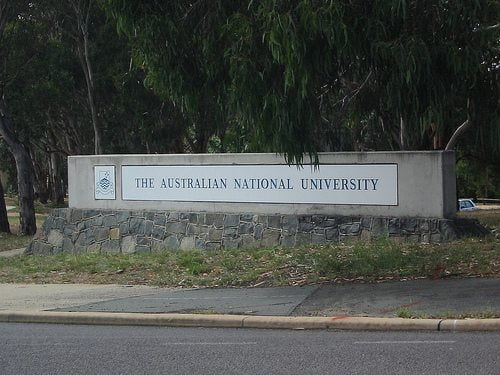

Invest
Australian National University to take sustainable investment advice from CAER
Environmental campaigners have welcomed the Australian National University’s (ANU) decision to hire research firm CAER, to advise the institution on sustainable and ethical investment.
ANU’s new agreement with Canberra-based analysts CAER will mean its investments are judged according to social, environmental and ethical risks.
“ANU recognises the importance an explicit socially responsible investment policy plays in communicating the broader corporate culture of the university to stakeholders,” investment director Mark Waldron said.
ANU is currently under pressure from campaigners to divest from companies that extract or burn fossil fuels.
The growing fossil fuel divestment campaign has targeted universities around the world, urging such respected institutions to use their position in society to strengthen the movement.
Student protest group Fossil Free ANU has welcomed the new announcement, but say it is not yet clear whether the contract will change ANU’s stance towards carbon-intensive investments.
“We are still yet to see what information they are actually buying and what ANU will do with it,” said Tom Swann, Fossil Free ANU spokesman.
“Even the IMF is now saying we should be heavily taxing coal to internalise the damage it inflicts. That sets a baseline for the kind of information we expect and we will be doing our own research to make sure [ANU’s] council gets the full picture.”
“At the end of the day, the real test of leadership is what ANU does with this information.”
The divestment movement, which developed in the US, principally urges investors to ditch fossil fuel firms because of the massive environmental impact they have.
The Intergovernmental Panel on Climate Change’s (IPCC) most recent report concluded that carbon-intensive energy production was the single biggest contributor to global warming. And yet, energy companies continue to search for new fossil fuels reserves, despite warnings from the IPCC that 80% of the reserves companies have already claimed must never be burnt.
Campaigners have also sought to make shareholders aware of the financial case for divestment.
Some experts say that if policies are introduced to ensure that the majority of fossil fuel reserves stay buried, the assets of fossil fuel firms would be severely devalued – leaving them as ‘stranded assets’.
Recent analysis by the thinktank Carbon Tracker warned that as much as $1.1 trillion (£650 billion) of investors’ money is currently at risk as a result.
“If ANU is honest with themselves and the ANU community, they will confront the damage done by fossil fuels and divest,” Swann added.
“ANU can’t outsource their ethics. They will have to choose to be leaders.”
Photo: Stephen Dann via Flickr
Take our 2014 reader survey and you could win an iPad, Kindle or donation to a charity of your choice.
Further reading:
Divestment: University of London’s school freezes fossil fuels investment
Desmond Tutu calls on South African university to divest from fossil fuels
University of Glasgow advisers suggest total divestment from fossil fuels within 10 years
University of Oxford academics demand fossil fuel divestment
Oxford residents and students to march for fossil fuel divestment


 Features11 months ago
Features11 months agoEco-Friendly Cryptocurrencies: Sustainable Investment Choices

 Energy11 months ago
Energy11 months agoThe Growing Role of Solar Panels in Ireland’s Energy Future

 Energy10 months ago
Energy10 months agoGrowth of Solar Power in Dublin: A Sustainable Revolution

 Energy10 months ago
Energy10 months agoRenewable Energy Adoption Can Combat Climate Change





























